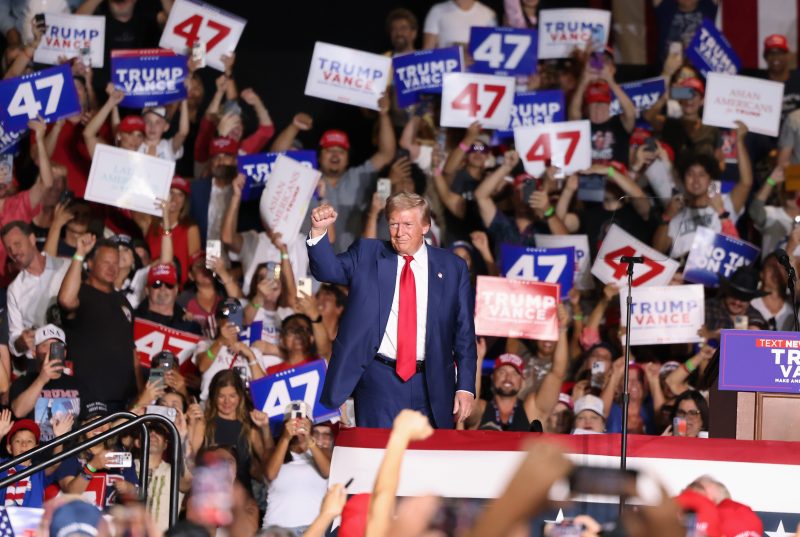In the aftermath of the first US presidential debate between Donald Trump and Joe Biden, the former’s refusal to accept criticism and instead embracing conspiracy theories has raised concerns among the public and political analysts alike. Trump’s inability to acknowledge his poor debate performance has led him down a path of baseless allegations and unsupported claims.
One of the key conspiracy theories that Trump has promoted is the idea of widespread voter fraud through mail-in ballots. Despite lacking any substantial evidence to support this claim, he continues to perpetuate fear and doubt about the legitimacy of the election process. This tactic not only undermines the public’s confidence in the electoral system but also disregards the efforts of election officials who work tirelessly to ensure a fair and transparent voting process.
Furthermore, Trump’s resistance to denounce white supremacy during the debate has also sparked criticism and fueled conspiracy theories. His ambiguous response to the moderator’s question about condemning white supremacist groups has been interpreted by some as a tacit approval of such ideologies. This has emboldened extremist groups and heightened concerns about racial tensions and violence in the country.
In addition to his reluctance to address pressing issues, Trump’s inclination towards conspiracy theories is evident in his recent COVID-19 diagnosis. Despite contracting the virus himself, he has downplayed the severity of the pandemic and even suggested unfounded treatments such as injecting disinfectants or promoting unproven drugs. This reckless behavior not only endangers his own health but also misguides the public on crucial health measures and precautions.
The danger of embracing conspiracy theories lies in their ability to sow discord, spread misinformation, and erode trust in institutions. By choosing to rely on unverified claims and unfounded accusations, Trump not only undermines his own credibility but also jeopardizes the fabric of democratic values and principles. In a time where unity and cooperation are needed more than ever, the propagation of conspiracy theories only serves to deepen divides and create further instability.
Ultimately, Trump’s refusal to accept criticism and his penchant for conspiracy theories highlight a broader issue of leadership and accountability. The presidency demands a level of responsibility, honesty, and integrity that cannot be compromised by personal ego or political gain. As the US approaches a critical election and faces unprecedented challenges, it is crucial for leaders to prioritize truth, transparency, and the well-being of the nation above all else. Only by rejecting falsehoods and embracing facts can we build a more informed, united, and resilient society for the future.



